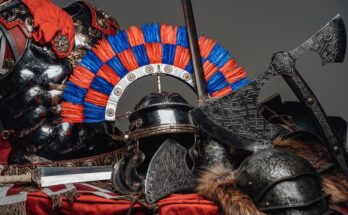Introduction to Government Types
Understanding the various forms of government is crucial in comprehending the functioning of societies worldwide. Governments shape the dynamics of nations, influencing everything from individual freedoms to economic policies. In this comprehensive guide, we delve into the diverse array of government types prevalent across the globe.
- Democracy
- Monarchy
- Oligarchy and Aristocracy
- Republic
- Theocracy
Democracy
Democracy stands as a beacon of liberty, embodying principles of equality, freedom, and participation. At its core, democracy empowers citizens to actively engage in decision-making processes, ensuring governance by the people, for the people.
Definition and Principles of Democracy
Democracy, derived from the Greek words “demos” (people) and “kratos” (power), encapsulates the fundamental principle of popular sovereignty. Here, governmental authority emanates from the collective will of the populace, with elected representatives entrusted to voice citizens’ concerns and enact policies reflective of their interests.
Types of Democracy
The spectrum of democratic governance encompasses various models, each tailored to suit the socio-political landscape of its nation. From direct democracy, where citizens directly participate in decision-making, to representative democracy, where elected officials represent constituents, the permutations of democratic systems are vast and nuanced.
- Direct Democracy
- Representative Democracy
- Parliamentary Democracy
- Presidential Democracy
- Hybrid Forms
Direct Democracy
Direct democracy epitomizes the purest form of democratic governance, wherein citizens directly participate in decision-making processes. Here, individuals have the opportunity to vote on policies, laws, and other matters of public concern without intermediary representatives. Direct democracy flourishes in smaller communities or organizations where it is logistically feasible for citizens to convene and engage in deliberative processes.
Representative Democracy
Representative democracy, also known as indirect democracy, is the most prevalent form of democracy globally. In this model, citizens elect representatives to legislate and govern on their behalf. Through regular elections, voters delegate authority to elected officials who then enact laws, formulate policies, and represent the interests of their constituents in governmental institutions. Representative democracy facilitates the efficient functioning of complex societies by empowering citizens to engage in governance through elected proxies.
Parliamentary Democracy
Parliamentary democracy blends elements of both direct and representative democracy, with a focus on the legislative branch of government. Here, citizens elect members of parliament who, in turn, select the executive leadership, typically the prime minister. The executive branch remains accountable to the legislature, ensuring checks and balances within the system. Parliamentary democracy fosters cooperation between the executive and legislative branches, promoting stability and responsiveness in governance.
Presidential Democracy
In contrast, presidential democracy emphasizes the separation of powers between the executive and legislative branches. Citizens directly elect a president who serves as the head of state and government. The president, along with their administration, is responsible for executing laws and implementing policies independent of the legislature. This form of democracy often features a fixed term for the president, ensuring continuity and stability in leadership.
Hybrid Forms
Additionally, hybrid forms of democracy, such as semi-direct democracy or consensus democracy, combine elements of multiple democratic models to suit specific societal needs. These hybrid systems often emerge in diverse cultural or political contexts, reflecting a pragmatic approach to governance that blends participatory and representative elements.
Monarchy
Monarchy, an age-old institution, symbolizes hereditary rule, with sovereignty vested in a single individual—the monarch. While historically prevalent, modern monarchies have evolved, adopting constitutional frameworks to temper royal authority.
Definition and Principles of Monarchy
Monarchy is a form of government where sovereignty is vested in a single individual known as the monarch. The monarch typically inherits their position through hereditary succession, maintaining authority over the state. Central to monarchy is the principle of royal prerogative, granting the monarch discretionary powers to govern. Historically, monarchs have claimed divine right, asserting their legitimacy to rule as ordained by higher powers. While modern monarchies often adopt constitutional constraints, the fundamental principle of monarchical governance remains rooted in the notion of a single, hereditary ruler holding supreme authority over the realm.
Types of Monarchy
Monarchies, while unified by the concept of rule by a single individual, manifest in diverse forms that vary in the extent of royal authority and the role of the monarch within the governmental structure. The primary types of monarchy include:
- Absolute Monarchy
- Constitutional Monarchy
Absolute Monarchy
In absolute monarchies, monarchs wield unrestricted power, governing without constitutional constraints. Historically, absolute monarchs held sway over every aspect of governance, from legislative to judicial affairs, often ruling by divine right.
Constitutional Monarchy
Constitutional monarchies, conversely, operate within the confines of a written constitution, wherein the monarch’s powers are circumscribed by law. Here, the monarch serves as a ceremonial figurehead, with executive authority vested in elected officials.
Oligarchy and Aristocracy
Oligarchies and aristocracies denote systems where power rests in the hands of a select few—typically the elite or nobility. These forms of government often prioritize the interests of the privileged few, perpetuating social hierarchies and inequalities.
Definition and Principles of Oligarchy and Aristocracy
Oligarchy denotes a system of governance where power rests in the hands of a small, privileged elite, often determined by wealth, political influence, or military control. In contrast, aristocracy embodies a social hierarchy based on hereditary nobility or elite status, with power concentrated among a select class of individuals. Both oligarchy and aristocracy prioritize the interests of the ruling elite over those of the general populace, perpetuating social stratification and inequality. These systems undermine democratic principles of equality and participation, reinforcing entrenched privileges and barriers to social mobility.
Types of Oligarchy and Aristocracy
Oligarchy and aristocracy represent forms of governance where power is concentrated in the hands of a select few individuals or a privileged elite. These systems often prioritize the interests of the ruling class over those of the general populace. Within oligarchies and aristocracies, several distinct variations exist, each characterized by different modes of elite control and societal organization:
- Wealth Oligarchy
- Political Oligarchy
- Military Oligarchy
- Hereditary Aristocracy
- Meritocratic Aristocracy
Wealth Oligarchy
In a wealth oligarchy, political power is predominantly wielded by individuals or families possessing significant economic resources. Wealth serves as the primary criterion for participation in governance, with affluent elites leveraging their financial influence to shape policy decisions and secure favorable outcomes for themselves and their allies.
Political Oligarchy
Political oligarchies emerge when a small group of individuals or a dominant political party monopolizes political power and control over governmental institutions. These oligarchies often manipulate electoral processes, restrict opposition voices, and consolidate authority through patronage networks or coercive means.
Military Oligarchy
Military oligarchies arise when the armed forces or military elites exert substantial influence over governance and decision-making processes. In such systems, military leaders may seize power through coups or revolutions, establishing authoritarian regimes where military institutions play a central role in both domestic affairs and foreign policy.
Hereditary Aristocracy
Hereditary aristocracy is characterized by a social hierarchy based on inherited noble status and lineage. Aristocrats, typically belonging to noble families with ancestral wealth and privileges, occupy positions of authority and influence within society. In hereditary aristocracies, titles, land ownership, and lineage determine one’s social standing and access to political power.
Meritocratic Aristocracy
Meritocratic aristocracies reward individuals based on their merit, talents, or achievements rather than solely on inherited status or wealth. In these systems, individuals can ascend to positions of privilege and authority through educational attainment, professional success, or exceptional contributions to society. Meritocratic aristocracies aim to cultivate a leadership cadre composed of the most capable and qualified individuals, regardless of their social background.
Republic
Republics champion the ideals of representative governance, where elected officials administer public affairs on behalf of the citizenry. Rooted in principles of popular sovereignty and civic virtue, republics strive to uphold democratic values while fostering political stability.
Definition and Principles of Republic
A republic is a form of government wherein sovereignty resides in the citizens, who exercise their power indirectly through elected representatives. Rooted in the principle of popular sovereignty, republics prioritize the collective will of the people, fostering democratic governance and accountability. Unlike monarchies, where power is vested in a single individual, republics distribute authority across multiple branches of government, typically including the executive, legislative, and judicial branches. Through regular elections and the rule of law, republics aim to uphold civil liberties, protect minority rights, and promote civic engagement, thereby safeguarding democratic values and ensuring government by the people, for the people.
Types of Republic
Republics, while united by the principle of governance by elected representatives, exhibit diverse structures and variations that reflect the unique historical, cultural, and political contexts of their societies. Some prominent types of republics include:
- Parliamentary Republic
- Presidential Republic
- Federal Republic
- Socialist Republic
- Democratic Republic
Parliamentary Republic
In a parliamentary republic, the executive branch derives its legitimacy from the legislative branch, typically known as parliament. The head of state, often a president or monarch, serves a ceremonial role, while the prime minister, chosen from the parliamentary majority, holds executive authority. This system emphasizes cooperation between the executive and legislative branches, promoting stability and consensus-driven governance.
Presidential Republic
In contrast, a presidential republic features a clear separation of powers between the executive and legislative branches. The president, elected separately from the legislature, serves as both the head of state and government, wielding significant executive authority. This system fosters checks and balances among the branches of government, with the president acting as a counterbalance to the legislative body.
Federal Republic
Federal republics comprise a union of semi-autonomous states or regions governed by a central authority. Power is shared between the national government and regional entities, with each level of government possessing its own sphere of authority and responsibilities. Federal republics aim to accommodate diverse cultural, linguistic, and political identities while maintaining a cohesive national identity and promoting unity.
Socialist Republic
Socialist republics adhere to socialist principles of collective ownership of the means of production and socioeconomic equality. While governance structures vary, socialist republics typically prioritize state control over key industries and economic planning to achieve equitable distribution of resources and promote social welfare. The ruling socialist party often plays a central role in policymaking and decision-making processes.
Democratic Republic
Democratic republics combine democratic principles of popular sovereignty and representative governance with republican ideals of rule by law and institutional checks and balances. These republics prioritize the protection of individual rights, free and fair elections, and the rule of law. Democratic republics aim to ensure government accountability, transparency, and responsiveness to the needs and aspirations of the citizenry.
Theocracy
Theocracy intertwines religious and political authority, with governance dictated by divine mandate or religious doctrine. Here, clerical figures wield significant influence, shaping policies in accordance with religious precepts and beliefs.
Definition and Principles of Theocracy
A theocracy is a form of government where religious institutions hold significant influence or authority over governance and policymaking. In a theocratic system, religious laws, doctrines, or figures dictate political decisions, often intertwining spiritual and temporal authority. Theocratic principles prioritize the alignment of civil laws with religious precepts and beliefs, aiming to establish a society governed by divine guidance or religious teachings. Theocratic governance may vary in its degree of religious influence, ranging from partial to total integration of religious authority into the state apparatus. Central to theocracy is the notion of divine legitimacy, wherein rulers derive their authority from religious mandates or divine sanction.
Types of Theocracy
Theocracy, as a form of governance, encompasses various manifestations characterized by the degree of religious influence and the extent to which religious institutions wield authority over political affairs. Some notable types of theocracy include:
- Ecclesiastical Theocracy
- Civil Theocracy
- Absolute Theocracy
- Constitutional Theocracy
Ecclesiastical Theocracy
n an ecclesiastical theocracy, religious leaders or clergy exert direct control over both religious and political domains. These leaders often hold positions of political authority alongside their religious roles, shaping governmental policies and decisions according to religious doctrines and teachings. Ecclesiastical theocracies prioritize the alignment of civil laws with religious principles and may establish a hierarchical structure where religious leaders hold supreme authority.
Civil Theocracy
Civil theocracies feature a system where religious principles inform governmental policies and legislation, but political leaders, rather than religious figures, hold primary authority. While religion may play a significant role in shaping public discourse and influencing policymaking, civil theocracies maintain a separation between religious and political institutions. Leaders in civil theocracies may still derive their legitimacy from religious ideals, but governance is conducted through secular channels.
Absolute Theocracy
Absolute theocracies represent the most extreme form of religious governance, where religious authorities hold absolute power and control over all aspects of society. In these systems, religious leaders or institutions monopolize political authority, with little to no room for dissent or opposition. Absolute theocracies often enforce strict adherence to religious laws and doctrines, imposing severe penalties for perceived violations. Theocracy in its absolute form may suppress individual freedoms and civil liberties in favor of religious orthodoxy and obedience to divine mandates.
Constitutional Theocracy
Constitutional theocracies blend religious principles with constitutional frameworks, establishing a system of governance where civil laws are informed by religious values but are subject to constitutional limitations and protections. In these theocracies, a constitution serves as a safeguard against the undue influence of religious authorities, ensuring the protection of individual rights and freedoms. Constitutional theocracies aim to strike a balance between religious principles and democratic governance, promoting pluralism and tolerance while upholding the rule of law.
Conclusion
In navigating the complex tapestry of global governance, it becomes evident that no single government type reigns supreme. Instead, the world is a mosaic of diverse political systems, each with its unique merits and shortcomings. By understanding and appreciating the myriad forms of government, we gain insights into the rich tapestry of human civilization and the enduring quest for justice, equality, and freedom.




